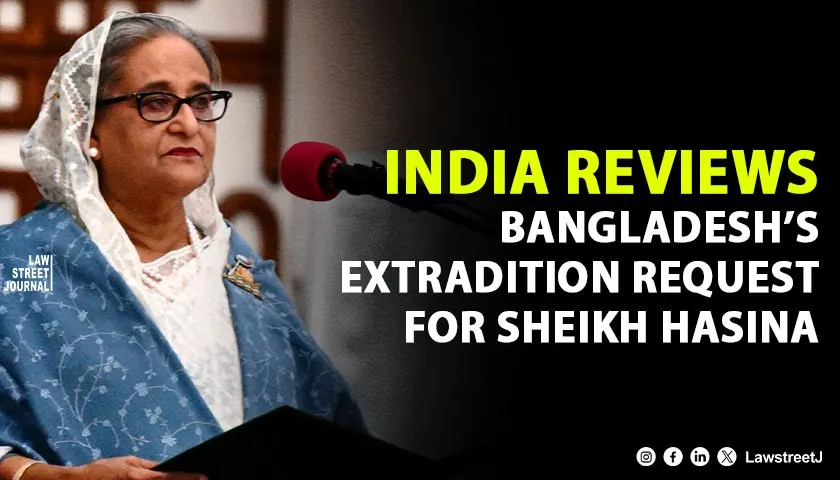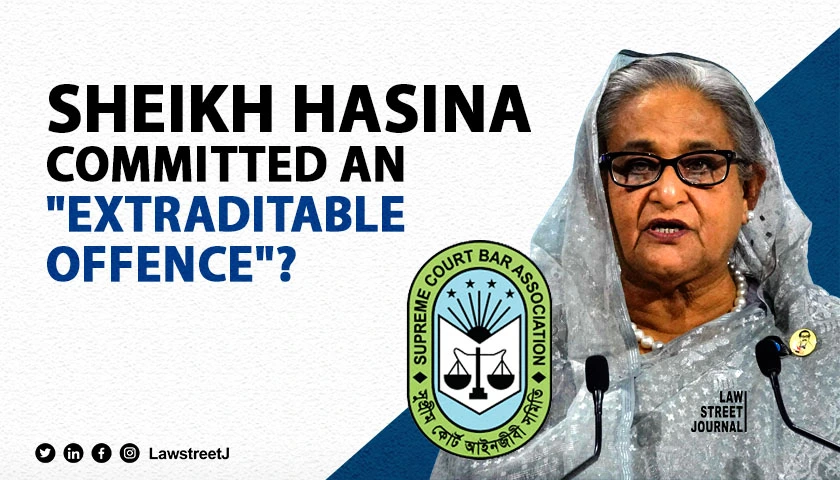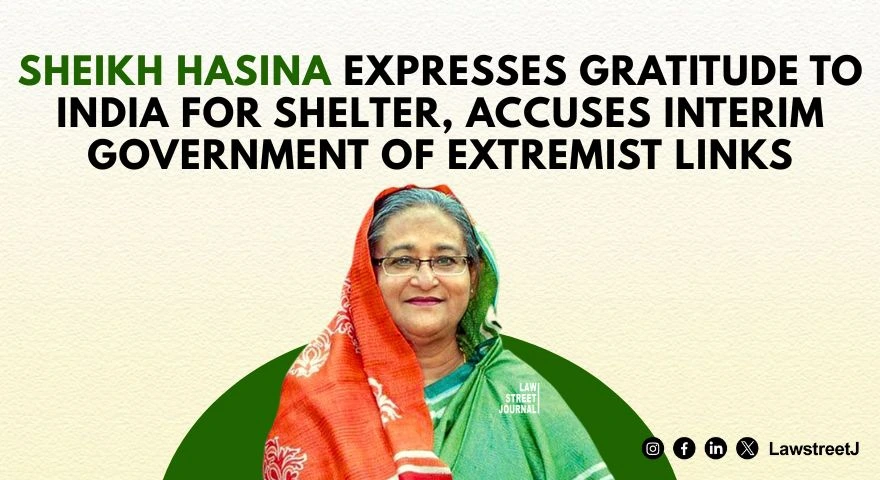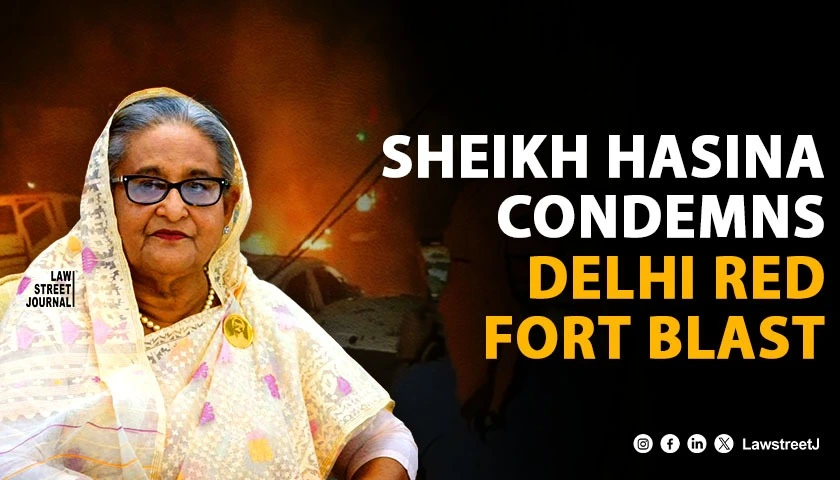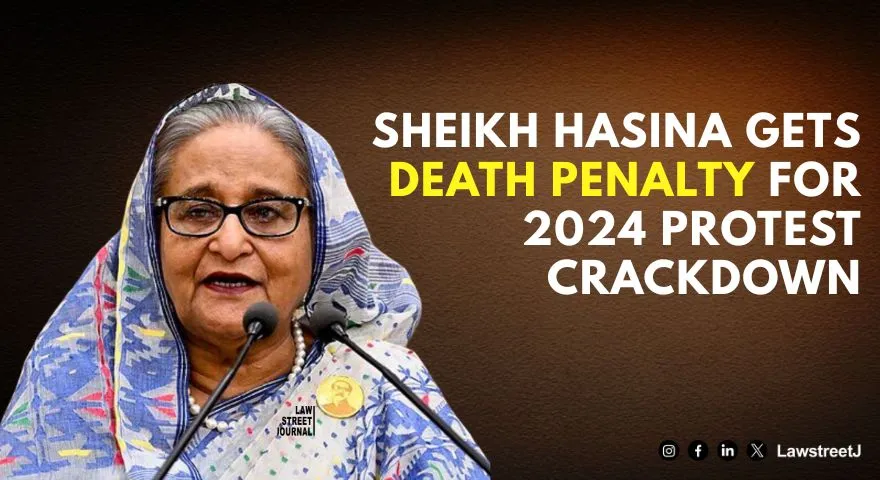New Delhi: India is reviewing a formal extradition request from Bangladesh for former Prime Minister Sheikh Hasina, who was sentenced to death in absentia by Bangladesh’s International Crimes Tribunal (ICT) on November 17. The request, submitted under the bilateral extradition treaty, places the two neighbouring countries in a delicate diplomatic position and has triggered a detailed legal assessment within the Indian system.
Tribunal Verdict and Extradition Move
The ICT verdict delivered earlier this month convicted Sheikh Hasina, 78, of crimes against humanity for her alleged actions during the student-led protests that swept Bangladesh between July and August 2024. The tribunal ruled that she incited, enabled, and failed to prevent violent state responses that resulted in deaths and widespread rights violations. The ruling was issued in her absence.
Following the judgment, Bangladesh’s interim government, led by Muhammad Yunus, formally submitted an extradition request to India under the India–Bangladesh Extradition Treaty, 2013, which permits extradition for offences punishable under the laws of both countries and not deemed political in nature.
Foreign Affairs Adviser M. Touhid Hossain said Bangladesh expected India to respond in accordance with the treaty. “The situation is different now with the judicial process completed. We expect India to respond in accordance with the treaty obligations,” he said.
Hasina has been in India since August 5, 2024, after leaving Bangladesh during escalating protests and political unrest. Her presence in India has added urgency to the diplomatic consultations.
India’s Ministry of External Affairs (MEA) confirmed receiving the extradition request and stated that it is undergoing legal and judicial scrutiny. MEA spokesperson Randhir Jaiswal reiterated India’s commitment to maintaining “peace, democracy, and stability in Bangladesh,” adding that the matter is being processed through the required domestic legal channels.
Under the Extradition Act, 1962, India must follow specific procedures while examining the request:
- The offence must also be punishable under Indian law.
- Extradition cannot be granted for political or military offences.
- Authorities must assess whether the individual may face persecution or be denied a fair trial.
The process typically involves scrutiny by the Ministry of Home Affairs, legal vetting, and proceedings before the competent Indian court. Only after these stages can the central government make a final decision.
Legal experts note that the nature of the charges, the political transition in Bangladesh, and Hasina’s status as a former prime minister create a complex legal scenario. India must assess whether the ICT judgment meets standards of due process and evaluate any risks associated with her potential return.
Diplomatic Significance for the Region
The request comes at a time of major political realignment in Bangladesh. Since Hasina’s departure and the formation of the interim government under Muhammad Yunus, Dhaka has initiated measures aimed at accountability and political restructuring.
India, a key partner of Bangladesh and a major geopolitical actor in South Asia, now faces a decision carrying significant diplomatic weight. The Extradition Treaty allows India to deny extradition if the case appears politically motivated or if the individual may face threats or persecution. India’s measured public position—reflected in the MEA’s neutral remarks—suggests these concerns are being considered.
International attention has intensified. Human rights groups and global observers are closely monitoring the case, focusing on Bangladesh’s accountability mechanisms and the broader implications for human rights in the region. Civil society organizations have called for transparency and adherence to international legal norms.
As of now, India has not indicated a timeline for completing its internal review. Officials have emphasized that the request is under examination in accordance with legal procedures. Meanwhile, Bangladesh maintains that its request fully complies with the 2013 treaty.
Hasina’s stay in India since shortly after the 2024 protests continues to be a subject of diplomatic debate. Her future now depends on the outcome of India’s legal and administrative review. Any decision will likely have a significant impact on the broader diplomatic environment between the two nations.

